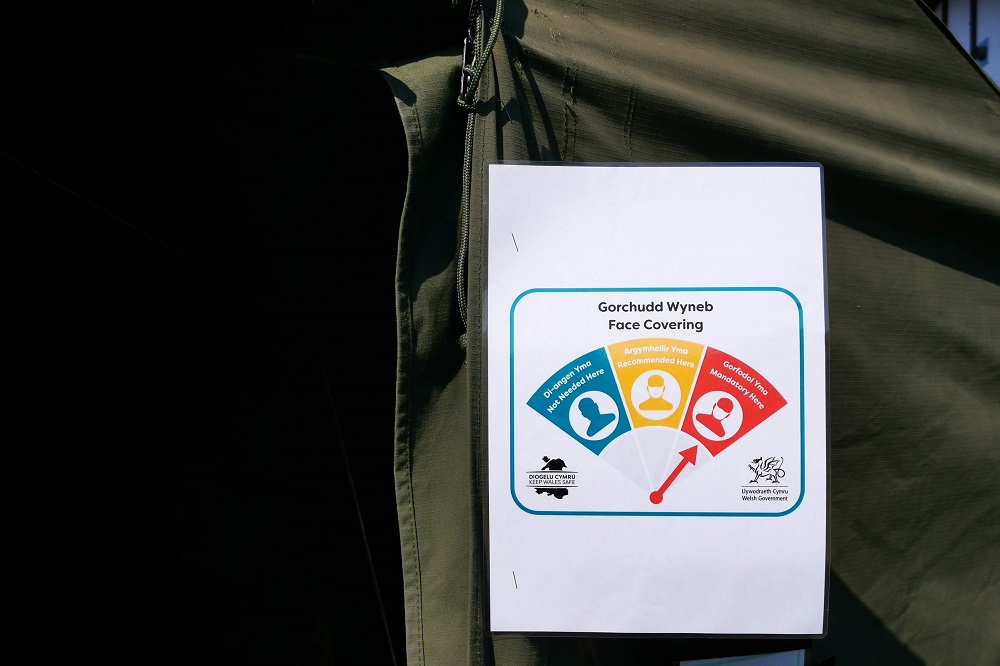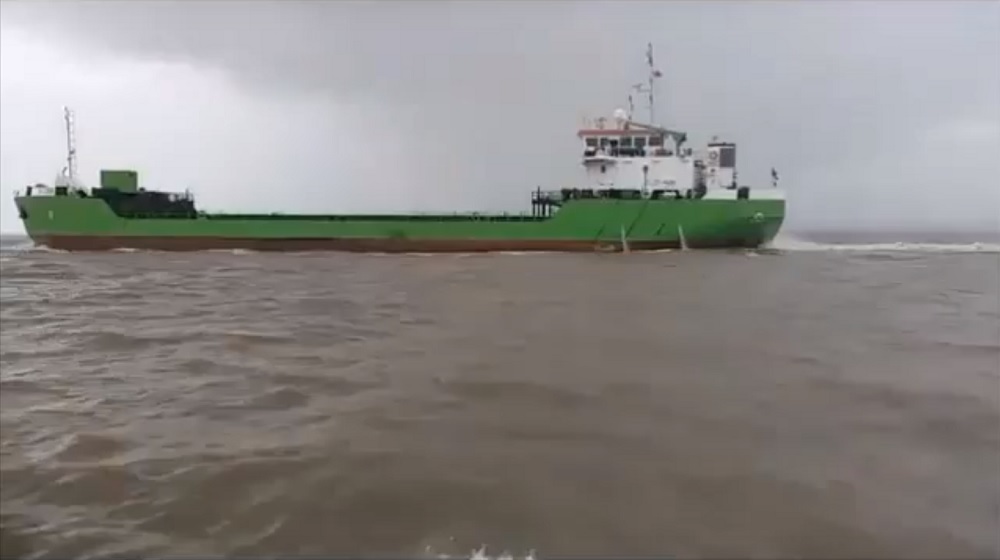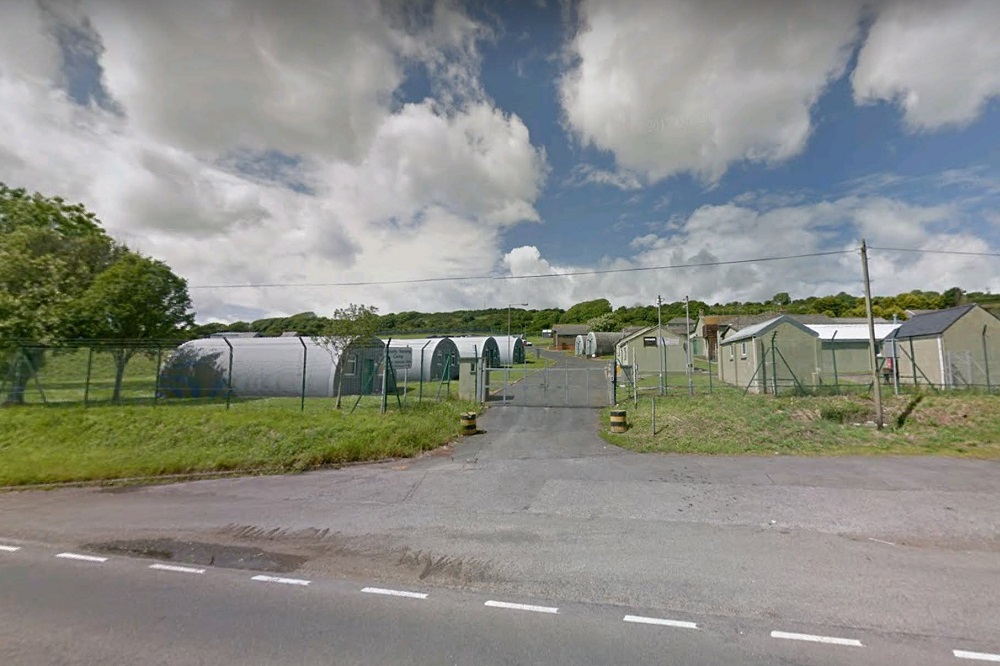News in brief: Shadow minister says fines should be a ‘last resort’ as lockdowns spread

Plaid Cymru says that supporting people to self-isolate is more important than fines following confirmation from Health Minister Vaughan Gething that Newport, Bridgend, Merthyr Tydfil and Blaenau Gwent will all be put in lockdown from tomorrow at 6pm.
Local restrictions have already been put in place in Caerphilly borough and Rhondda Cynon Taf over the last two weeks to try to slow the recent sharp increase in coronavirus cases in the areas.
From tomorrow over a quarter of Wales’ population will be under local lockdown – 850,000 of 3.2m people.
Plaid Cymru Shadow Economy Minister Helen Mary Jones MS had said fines should be a “last resort” as she renewed calls on Welsh Government and Westminster to provide a package of financial support for families that have had to self-isolate but who are unable to work from home.
England’s health secretary Matt Hancock announced earlier that people there could be fined up to £10,000 if they failed to self-isolate and that people in work on low incomes will be able to claim a £500 lump sum payment if they cannot work from home and are required to self-isolate, either because they’ve tested positive or are a close contact of a positive case.
The UK Government says it is “engaging” with devolved authorities to develop a system which is aligned across the UK.
“Workers must not be placed in the impossible position of feeling like their only option is to go to work when unwell, or isolating in case they have been infected. And yet, without a dedicated package of support, families will be forced to make this difficult decision,” Helen Mary Jones said.
“The Welsh Government must take some responsibility for this. If Westminster won’t extend furlough scheme to support local lockdowns, then the Welsh Government needs to look at what support they might be able to provide.
“It is also important that local teams are properly resourced and empowered to help support their local communities in adhering to lockdown restrictions. With six local authorities now dealing with increased restrictions, this becomes all the more important.
“Without first putting in the appropriate support at a local level, it is unfair to consider financial penalties for those breaking the rules. Fines should be a last resort and reserved for those who behave selfishly, despite warnings. If those people continue putting others at risk, fines should be increased for repeat.”
The latest figures released by Public Health Wales have confirmed 230 new cases of coronavirus, the highest daily total since April 22.
Forty of those were in RCT, which has been under lockdown since last week. There have been 201 cases in the area in the last seven days, the highest in Wales and it has an infection rate of 83.3 per 100,000 people.
12 new cases were reported in Merthyr Tydfil, where the proportion of cases over the last week is the highest in the country at 102.8 per 100,000.
Cardiff recorded 31 cases yesterday and there were 20 in Blaenau Gwent.
There have been no further deaths since Saturday, meaning the total number of deaths in Wales since March remains 1,603.
Since the first case at the end of February 20,878 people have tested positive for the virus. There were 9,850 tests carried out in the last 24 hours.

WNP leader calls for full Environmental Impact Assessment of mud dumping plans
Neil McEvoy, Leader of the Welsh National Party, claims there is “undeniable evidence of plutonium having leaked from Hinkley Point’s waste pipe” for decades and has called for consideration of EDF Energy’s application to dump mud from the site in Welsh waters to be suspended until a full Environmental Impact Assessment has been carried out.
In February EDF applied for permission to dump 780,000 tonnes of mud from the construction of the new Hinkley Point C nuclear power station two miles of the Cardiff coast.
Two years ago, the Welsh Government gave permission for 120,000 tonnes of mud from Hinkley Point to be dumped at the same site.
Mr McEvoy’s comments follow a presentation from Emeritus Professor and distinguished research fellow at Imperial College, Professor Keith Barnham last night.
Professor Barnham alleged the UK Government stopped testing for plutonium at the site shortly after a spike was identified in the early 1980s, citing evidence contained in the UK Government’s report NRPB-M173.
Neil McEvoy, Leader of the Welsh National Party said:”… the smoking gun is the UK Government’s report NRPB-M173, showing extremely high levels of plutonium in the waste pipe into the estuary, crucially without a corresponding spike in gamma radiation.
“The rationale given by Natural Resources Wales for not testing for plutonium or alpha radiation back in 2018 is that there had been no gamma spikes in the gamma testing carried out. Report NRPB blows the Welsh Government’s position out of the water. It shows that high levels of plutonium, alpha radiation can be present without high levels of gamma radiation.”
“According to Report NRPB-M173, there was plutonium being discharged for decades. How on earth could the Welsh Government accept a testing regime, which did not test for the plutonium we know was discharged into the estuary?
“It is also crucial that the Welsh Government comes clean and tells us what mud was dumped in 2018. Was it the mud immediately near the waste pipe, or was it from elsewhere?”
Last week campaigners opposing the mud being dumped off Cardiff Bay accused Natural Resources Wales of failing to insist on adequate testing of the sediment.
EDF Energy began their sampling programme in August without an agreed sample plan between them and NRW. But the Welsh Government’s environmental watchdog backed those proposals last week.
GeigerBay, the non-partisan coalition of scientists, experts, individuals and organisations opposing the dump had informed NRW that EDF’s sampling plan does not meet international requirements set by OSPAR (Oslo-Paris Convention for the Protection of the Marine Environment of the North-East Atlantic), that there are too few samples in the cores collected by EDF and the testing does not use procedures to detect the nuclear fuel microparticles uranium and plutonium.
Professor Keith Barnham said: “We are looking at taking legal opinion on this waste because I think it is an extremely serious matter that Westminster is giving incorrect science about a situation of great importance to the health and safety of the people and residents of South Wales.
“the mud around the estuary of Hinkley Point Nuclear Power station contains at least ‘30 million million (30 trillion) microparticles’ of plutonium.
“What we know from this Westminster report is that all the plutonium leak consists of particles the size of less than 5 microns.
“That is extremely important and extremely dangerous because at Sellafield, outside the processing plant where they similarly blown into the Irish Sea, 1-2 sized micron plutonium particles have been observed to be blown back in sea-spray onto the shore.
“Here’s the real crunch that’s most important, 1-2 microns is small enough to be inhaled and cause serious health problems like cancer”

Government not consulted over Penally asylum seeker plans
The Welsh Government has confirmed that it was not consulted by the Home Office or Ministry of Defence about proposals to use the Penally Army centre in Pembrokeshire to house 250 asylum seekers for up to 12 months.
Welsh Secretary Simon Hart, who is also the local MP, has said he is seeking “further clarification” after only learning of the plans last week.
The UK Government confirmed on Saturday that Penally will be one of two sites used to provide accommodation for asylum seekers arriving by boat on the south coast of England.
The other site is reported to be a disused army barracks in Folkestone, Kent.
A statement from the Welsh Government said: “The UK government didn’t consult the local community, local services or us about their plans to use a military base in Wales for asylum seekers.
“We believe people fleeing war and conflict deserve the best possible start in a new country. We must do better.”
A spokesman for the UK Government said: “This site was selected because it met the required needs following an assessment by the MOD of potentially suitable and available sites.”
The first group of asylum seekers are expected to arrive at the camp this week.

Support for access to free school meals for pupils shielding or self-isolating
Education Minister Kirsty Williams has announced funding of £420,000 to ensure all pupils entitled to free school meals will continue to receive provisions if they are shielding or have to self-isolate.
Ensuring the continuation of free school meal provision has been a key priority for the Welsh Government from the start of coronavirus pandemic.
As schools were closed due to lockdown in March the government made £7 million available to local authorities to put in place measures to ensure that children eligible for free school meals would continue to benefit from this scheme.
The following month Wales became the first country in the UK to guarantee ongoing funding for children to continue to benefit from free school meal provision up to the end of the summer holidays.
Kirsty Williams said: “It is vital that children who receive free school meals are able to continue to benefit from this support whether they are in school or at home because they are shielding or self-isolating.
“We have worked tirelessly this year to respond to the coronavirus pandemic and the countless challenges it is has presented but we have not, and will not, forget those for who school is about far more than education.”
Support our Nation today
For the price of a cup of coffee a month you can help us create an independent, not-for-profit, national news service for the people of Wales, by the people of Wales.





